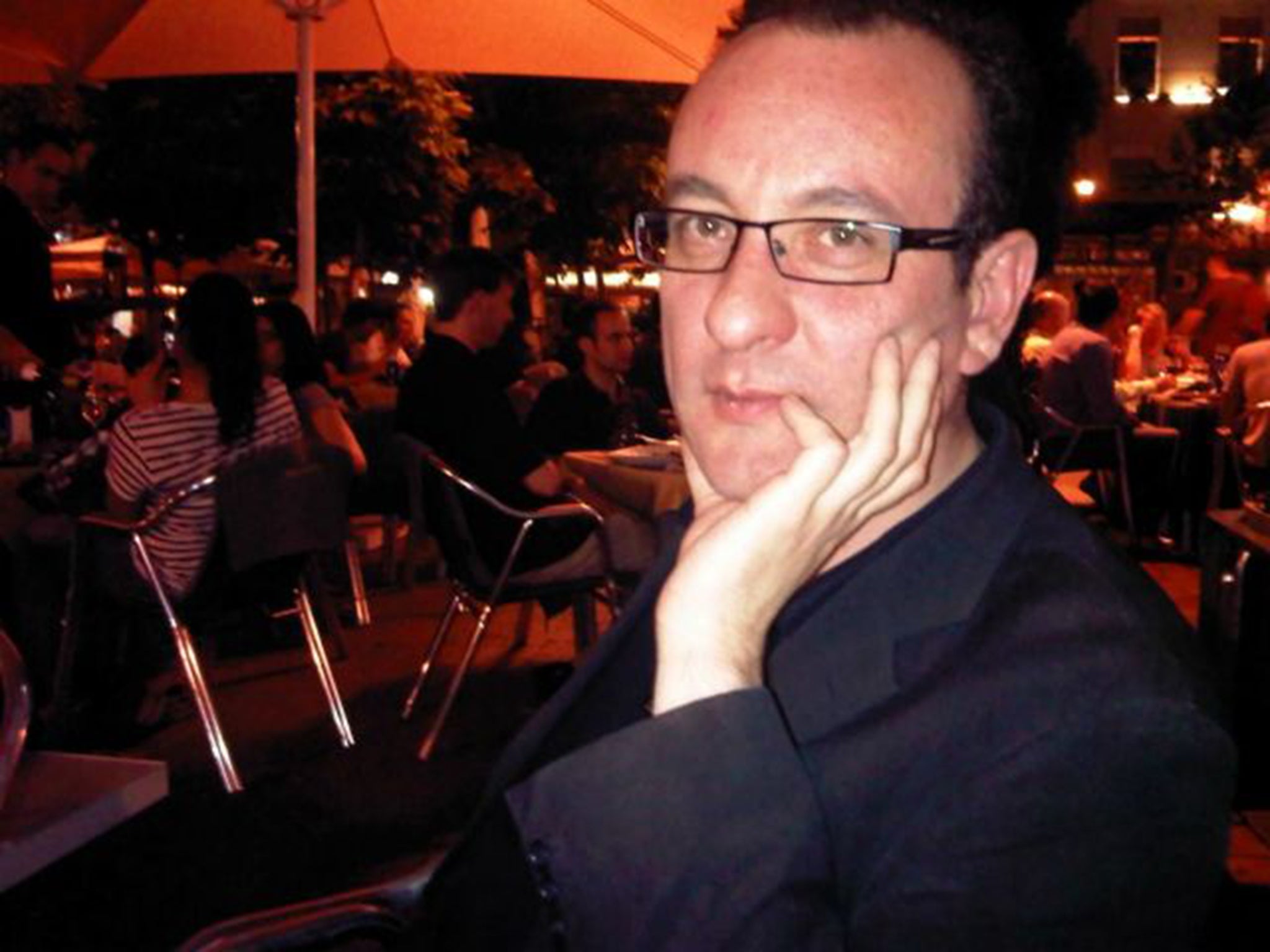Peter Rosser: Composer and teacher who eschewed computers to write his challenging and notationally complex works
He died just as his favourite record, Bob Dylan’s ‘Desire’, clicked off on the Dansette

His works were a blur of hemi-demi-semiquavers and irrational time signatures, pushing the very limits of performance. But unlike many contemporary composers, Peter Rosser was not seduced by the power of technology as he crafted his complex scores. Where others saw limitless possibilities in computers, he railed against the “reclassification of music as sonic art”. Acoustic music was dangerous, vulnerable, human; a dialogue between writer, player, instrument and audience.
By contrast, the music of laboratories “doesn’t begin, it sets off, it doesn’t progress, it continues, and it doesn’t end, it stops in its tracks”. This mistrust extended to the act of composition itself, rejecting the ubiquitous Sibelius software and the temptation to cut and paste and listen back. Ink, paper and a brilliant, clear mind were his tools.
It required some of the world’s best players to perform his challenging scores. His best work, String Quartet No 2, was written for New York’s JACK quartet to premiere in the first classical concert at Belfast’s Metropolitan Arts Centre.
Rosser felt invigorated by the raw energy of Belfast, having moved from London in 1990 at a time when almost all creative traffic was travelling the opposite way. Born in 1970 in Highbury, within earshot of his beloved Arsenal FC, he heard his first classical music when brought to the Barbican by his grandfather.
St Aloysius’ College, alma mater of Michael Gambon and Peter Sellers, did not offer the subject so he joined classes in the girls’ school next door. He became an accomplished flautist, but composition was his passion.
His father was a Marxist who lost his proof-reading job in Fleet Street in the 1980s and Rosser became politically aware from a young age. He and classmates would go to the Hungarian tea shop in Hampstead to debate politics and religion. He considered himself part of the London Irish community – his mother was from Kilkenny – but his choice of the University of Ulster for his music degree was still brave. Studying composition under fellow Englishman David Morris, he achieved his doctorate in 1997. His theme was “The extent to which contemporary critical philosophy can find explicit realisation in instrumental work”, a preoccupation throughout his career.
Rosser immersed himself in music, philosophy, literature and popular culture, and his works drew on eclectic influences. The piano composition Dead Body, premiered in 2008, channelled both philosopher Walter Benjamin and Peter Falk’s Columbo. His greatest influence was the Coventry-born composer Brian Ferneyhough, about whom he was preparing a book. As well as notational complexity, their work shared many themes. Rosser’s music was performed by Irvine Arditti, Mieko Kanno, the Composers’ Ensemble and the Ulster Orchestra, and at festivals including Spitalfields, Huddersfield, Crash in Dublin and the Belfast Festival at Queen’s.
Writing was also a major part of his life. He contributed to Perspectives of New Music, the Journal of Music and The Wire, on subjects ranging from Hildegard von Bingen to Michael Jackson and Kylie. He championed local composers and performers and inspired young people through lecturing posts. With the organisation Live Music Now he also helped bring classical music to new audiences in prisons, libraries and other unlikely venues.
In his music, essays and everyday conversation, he encouraged argument and wanted people to think. Debate conducted over his magnificently-prepared meals always left people coming away with a clearer idea of what they believed.Rosser’s talent was recognised by the Arts Council of Northern Ireland in 2011 with a “major individual artist award”. The £15,000 grant allowed him to write his String Quartet No 2, described in one review as “the sonic equivalent of a Jackson Pollock drip painting”.
Brimming with ideas, Peter Rosser was a generous, optimistic soul who believed deeply in the power of the arts and the possibilities of the people of Northern Ireland. Diagnosed with head and neck cancer in January, he told friends he didn’t want to swim with dolphins or visit far-flung places; all his travelling could be done through books. He said: “When I can’t read, I feel lonely in my head.”
He died aged 44 in a room in the old part of Belfast’s Royal Victoria Hospital, as his favourite Bob Dylan album, Desire, played on a Dansette record player. His partner Anne said the record clicked off as he took his last breath. It was as if he thought, “This would be a good time to go.”
Peter Rosser, composer, writer and lecturer: born London 5 October 1970; died Belfast 24 November 2014.
Subscribe to Independent Premium to bookmark this article
Want to bookmark your favourite articles and stories to read or reference later? Start your Independent Premium subscription today.

Join our commenting forum
Join thought-provoking conversations, follow other Independent readers and see their replies